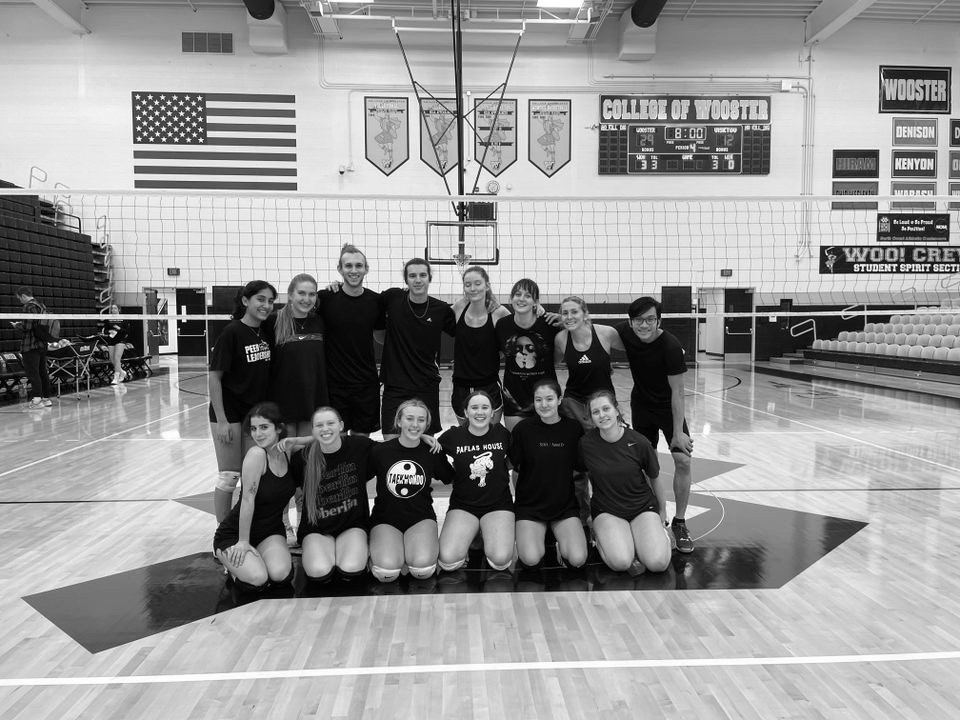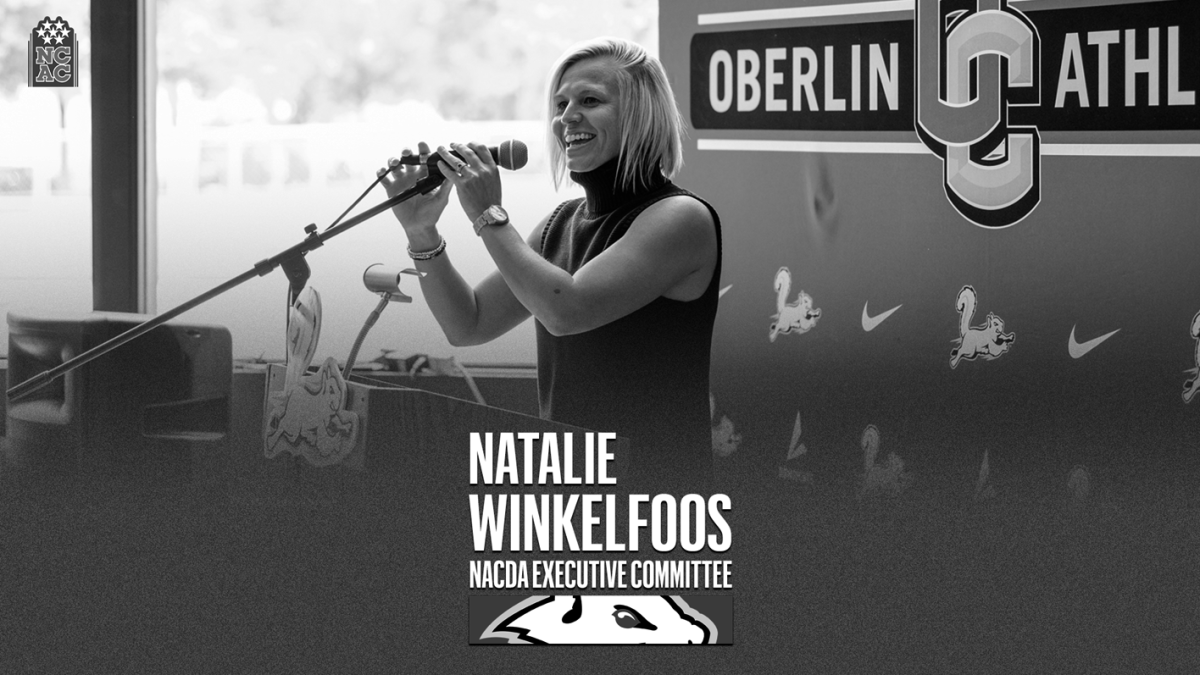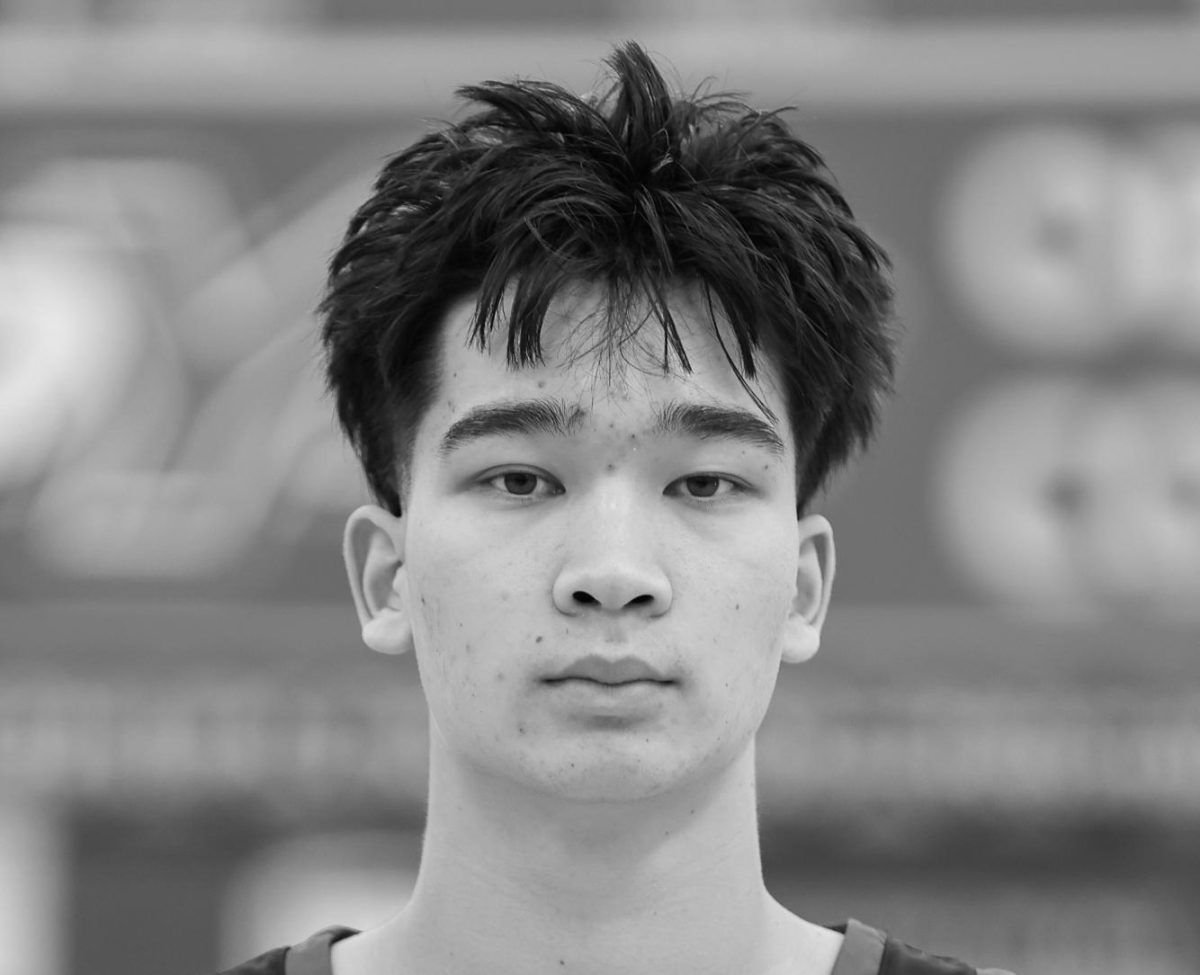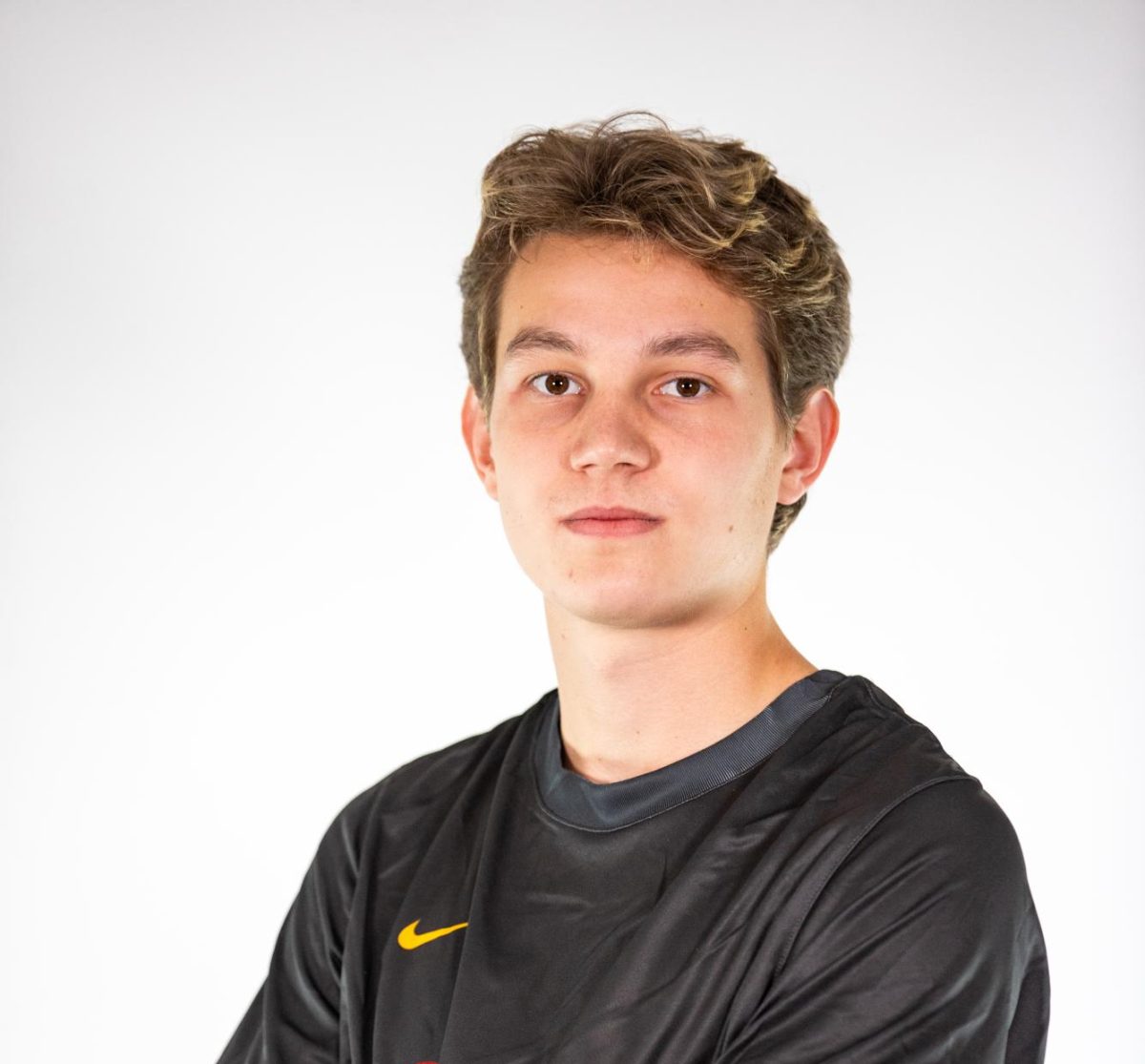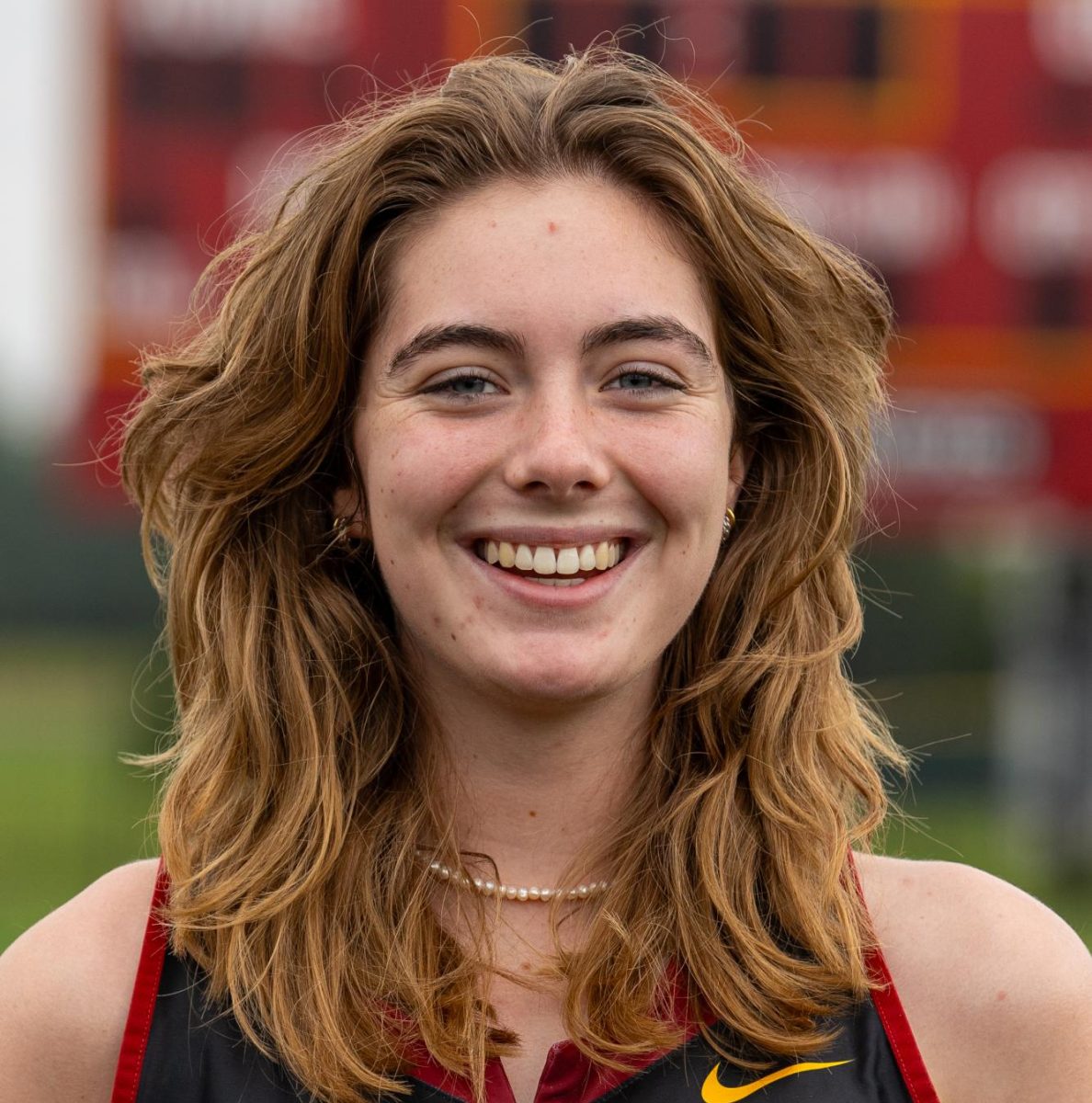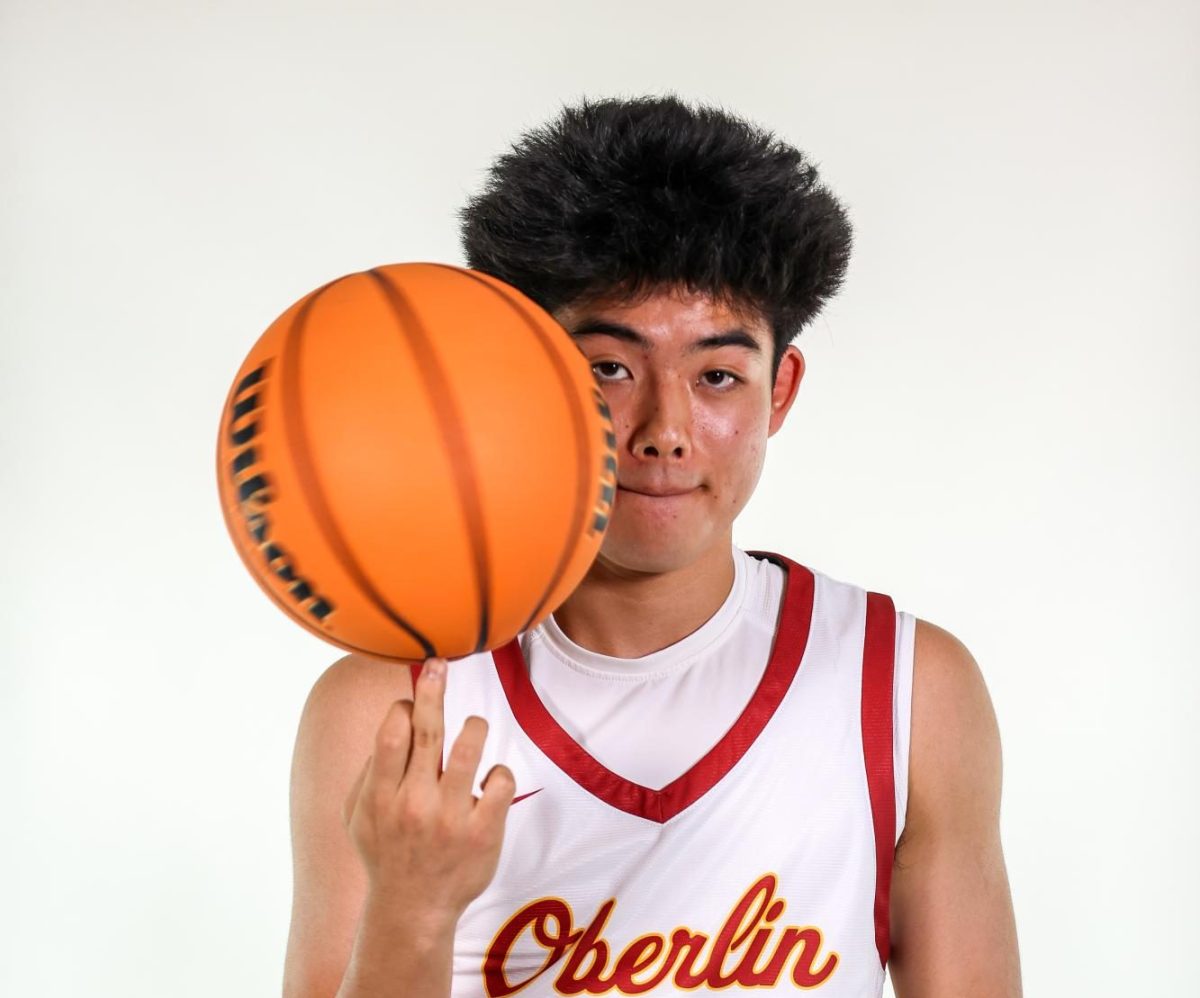For graduating seniors who play sports in high school, a major factor in their college decision can center around sports. Whether someone is looking to play a varsity sport in college or keep their passion for their sport alive with club or intramural sports, having their sport offered can be the difference between attending one school or another.
College third-year Colvin Iorio first started playing volleyball as a first-year in high school after Julia, his older sister who already played, was instructed by her friends to “tell your tall brother that he has to play volleyball.” Due to his height and athleticism from being a soccer goalie, Iorio improved quickly and played on varsity his sophomore and senior years — his junior year season was canceled due to COVID-19.
Iorio, a native of Columbus, IN, was certain he wanted to go to a small liberal arts college within driving distance of his home. Playing volleyball in college was never a real possibility for him, since men’s volleyball is often only played in bigger schools and he committed for Oberlin’s soccer team instead. However, he wished that there was an opportunity to continue competing in volleyball in some way at Oberlin.
“Second semester of my [first] year, I started talking to some of the people on the women’s varsity team and they found out that I had played in high school and they invited me to come play with them in some of their open gyms,” Iorio said. “It ended up that second semester [my first] year, I was playing volleyball with them more than I was doing any sort of off-season soccer stuff. And just talking to them, they were like, ‘You should definitely start a club team.’ And I was like, ‘Yeah, that would be awesome.’ So then we basically sort of planned [that] I would go through soccer season and then pretty much as soon as it ended that I would get on all the club stuff. Then, early November-ish of my second year, I submitted all the paperwork to start the club.”
College third-year Neva Tayler picked up volleyball in high school after seeing her older sister play, and it quickly became a passion of hers. Playing for both high school and club teams, Tayler developed a love for volleyball but knew that there wouldn’t be an opportunity for her to play in college, since she didn’t want the stress and burden of competing at the varsity level and Oberlin didn’t offer an alternative.
“I really wanted to protect my love for [volleyball and] I was worried that playing it at a collegiate level would feel really intense,” Tayler said. “I also didn’t want my whole life to be volleyball at college. But, when I was going into college, I was like, ‘I really hope there’s a club team.’ And then there wasn’t.”
However, she remained determined to find ways to keep playing the sport she loved. She and a friend went to play at an open gym last year and started talking about the possibility of a club team with Iorio. He initially was planning on creating a men’s club team, but there wasn’t enough interest in one yet. However, there were many nonbinary and female players who were attending open gyms and were interested in joining a club team. Since there weren’t enough male or female and nonbinary people to form their own teams, a mixed club team was created.
Following the success of last year’s mixed team, more people joined and there was enough interest to create two teams. Tayler is the president of the women’s and nonbinary team and Iorio is the president of the men’s team. Other officers of club volleyball include treasurer College third-year Mario Stinson-Maas, College second-year Dhanya Ramji, College fourth-year Cecelia Blake, and College fourth-year Sebastian Fischer.
As president of the women’s and nonbinary team, Tayler’s main focus is to create a supportive and uplifting environment that encourages everyone to relax and have fun while competing.
“I think we all know in sports people get very, very hard on themselves,” Tayler said. “And something that was hard for me growing up in sports was it’s not inherent to teach yourself to be gentle with yourself in a competitive space. I am just really proud of how gentle everyone is with one another and teaching one another how to be gentle with yourself through your teammates and people really emphasizing you are a part of this team. And you making a mistake or you doing something wrong isn’t a determinant of your value on this team. That’s really important.”
Iorio appreciates just how easily everyone on the team has gotten along and how the people who were there at the beginning have gelled together well and become great friends.
“The people I’ve met [are my favorite part of club volleyball,]” Iorio said. “It definitely is a wonderful community, and it quickly turned into my group of closest friends within the first semester. All [of] the people who got together, they were my best friends immediately.”
Even though these teams are not varsity teams, they are competing against other colleges. The women’s and nonbinary team is not currently a part of a formal club league, so they have to work with other club teams in Ohio and Pennsylvania to organize matches and tournaments. The men’s team just joined the Division II West Central division of the Eastern Collegiate Volleyball Association and competes against other Midwest schools, including Case Western Reserve University, Carnegie Mellon University, and John Carroll University.
Splitting the mixed team into two separate teams has its advantages, including separate funding for both teams and the opportunity to compete in a club league. However, both Tayler and Iorio are adamant about practices and matches as one team. They have tried to keep the two teams together as much as possible and want to strengthen the community bond everyone shares with their love of volleyball and for each other.
“Every travel team practice, we are practicing side by side, men’s net and women’s net, so we’re always in the same gym,” Tayler said. “We always warm up together. We always play Queens together. And sometimes we’ll mix playing and the guys will come over to join us, or we’ll join the guys. We do big scrimmaging. So, we still get a taste of what we had last semester, which is really nice and I think also something that we all wanted to protect in a way. Not making it this huge, binary difference, but still [staying] a whole community.”


